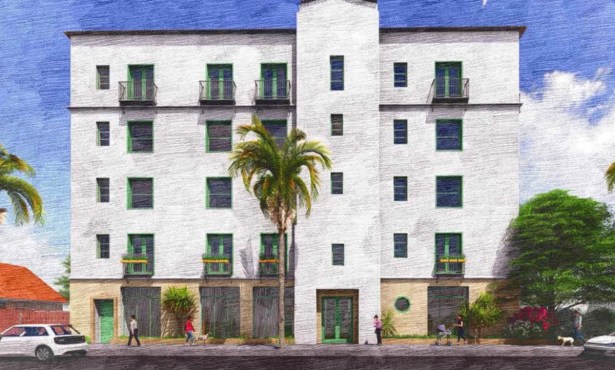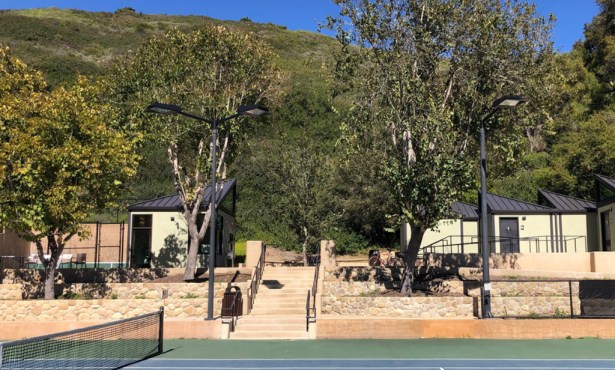Vote for Nacho
Nacho Libre
Jack Black, Ana de la Reguera, and Darius Rose star in a
film written by Jared and Jerusha Hess and Mike White, and directed
by Jared Hess.
Reviewed by Josef Woodard
Jared Hess is out to save Hollywood from itself, and he’s doing
a smash-up job so far. Granted, the assessment is based on only two
times at bat, but Hess clearly has something precious and needed: a
new comic voice. We first got a taste of this zinger zeitgeist with
Napoleon Dynamite, presumably a summer sleeper teen comedy, but
instead one of the greatest American films of recent years, and one
with a new twist on the concept of dry comedy, sneakily lubed with
compassion.
Hess’s follow-up, Nacho Libre, isn’t on that level of
revelation, but its strange dry wit and sweetness beneath the
satire satisfies from beginning to end. Many times during the film
— your basic “Mexican friar with dreams of wrestling glory” comedy
(!) — our excessive time spent in multiplexes lead us to expect the
usual crass punch line or other weary-assed Hollywood clichés,
which thankfully never arrive. Even the fart jokes are
charming.
Hess, with his kookily charismatic star Jack Black in the
camera’s crosshairs, delivers another unexpected, and unexpectedly
tender, bit of comic invention from the outskirts. Like the
Preston, Idaho setting of Napoleon, the rural Mexico context of the
new film presents a milieu normally far off Hollywood’s radar.
Among the taboos gently broached in Hess’s film is the idea that
tubby people are humans, too. Black, a Mexican monk at an orphanage
who can’t let go his obsession with being a wrestler, makes no
attempt to hide his girth, which often bulges convexly out of his
comic book-esque wrestler’s costume. The “fat kid” orphan Chancho
(Darius Rose) is the most endearing screen character of his size
since the little big guy in Bad Santa. On the other end of the
appeal spectrum is the beneficent hottie Sister Encarnación (Ana de
la Reguera), who fuels Nacho’s dreams of a life possibly beyond
vows of celibacy.
The film was dazzlingly shot in Mexico, mostly in Oaxaca, and
with both cool economy and dynamism in the wrestling ring, by
Mexican cinematographer Xavier Pérez Grobet. The soundtrack
sizzles, with tunes by Esquivel, Beck, and Los Lobos among others
you haven’t heard of, but want to know more about. Black himself, a
wunnerfully goofy, wannabe Freddie Mercury, sings a loopy,
seemingly off-the-cuff love song in the locker room, and then
croons on the very tail of the end credits (that’s a
stick-around-to-the-end alert).
What could have been culturally or racially dubious is — mostly,
anyway — a celebration of a slice of Mexican life, however set into
farcical relief. This also is the first major movie to deal with
the fantastical, ornately visual domain of Mexican wrestling, a
surreal culture unto itself. Ditto Black himself.


